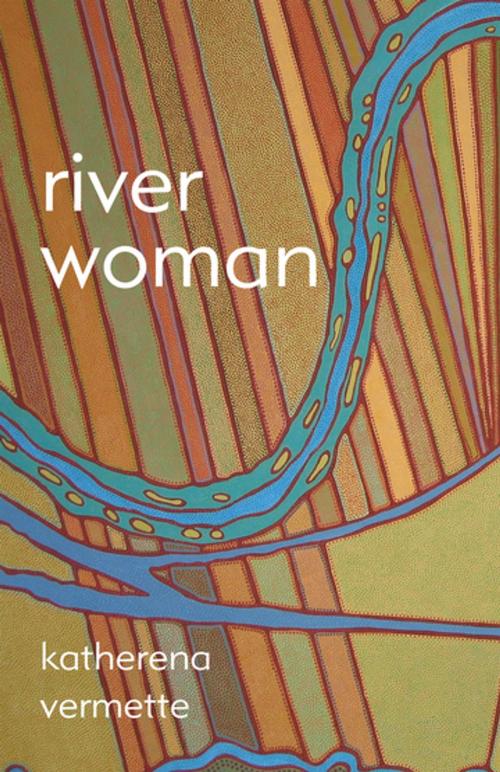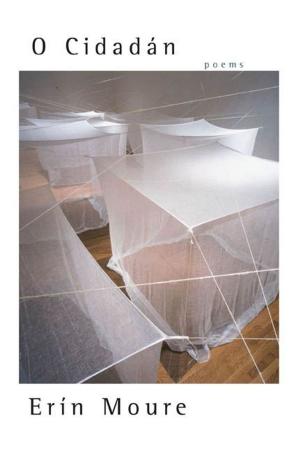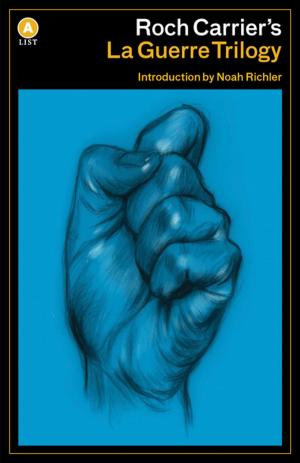| Author: | Katherena Vermette | ISBN: | 9781487003470 |
| Publisher: | House of Anansi Press Inc | Publication: | September 25, 2018 |
| Imprint: | House of Anansi Press | Language: | English |
| Author: | Katherena Vermette |
| ISBN: | 9781487003470 |
| Publisher: | House of Anansi Press Inc |
| Publication: | September 25, 2018 |
| Imprint: | House of Anansi Press |
| Language: | English |
Governor General’s Award–winning Métis poet and acclaimed novelist Katherena Vermette’s second work of poetry, river woman, examines and celebrates love as postcolonial action. Here love is defined as a force of reclamation and repair in times of trauma, and trauma is understood to exist within all times. The poems are grounded in what feels like an eternal present, documenting moments of clarity that lift the speaker (and reader) out of our preconceptions of historical time, while never losing a connection to history. This is what we mean when we describe a work of art as being “timeless.”
Like the river they speak to, these poems return again and again to the same source in search of new ways to reconstruct what has been lost. Vermette suggests that it’s through language and the body — particularly through language as it lives inside the body — that a fragmented self might resurface as once again whole. This idea of breaking apart and coming back together is woven throughout the collection as the speaker revels in the physical pleasures of learning Anishnaabemowin (“the language / I should have already known”), as she contemplates the ongoing negotiation between the natural world and urban structures, and as she finds herself falling into trust with the ones she loves.
Divided into four sections, and written in her distinctively lean and elegantly spare style, where short lines belie the depth within them, river woman explores Vermette’s relationship to nature — its destructive power and beauty, its timelessness, and its place in human history. Here is a poet who is a keen observer of an environment that is both familiar and otherworldly, where her home is alive with the sounds and smells of the land it grows out of, where “Words / transcend ceremony / into everyday” and “Nothing / is inanimate.”
Governor General’s Award–winning Métis poet and acclaimed novelist Katherena Vermette’s second work of poetry, river woman, examines and celebrates love as postcolonial action. Here love is defined as a force of reclamation and repair in times of trauma, and trauma is understood to exist within all times. The poems are grounded in what feels like an eternal present, documenting moments of clarity that lift the speaker (and reader) out of our preconceptions of historical time, while never losing a connection to history. This is what we mean when we describe a work of art as being “timeless.”
Like the river they speak to, these poems return again and again to the same source in search of new ways to reconstruct what has been lost. Vermette suggests that it’s through language and the body — particularly through language as it lives inside the body — that a fragmented self might resurface as once again whole. This idea of breaking apart and coming back together is woven throughout the collection as the speaker revels in the physical pleasures of learning Anishnaabemowin (“the language / I should have already known”), as she contemplates the ongoing negotiation between the natural world and urban structures, and as she finds herself falling into trust with the ones she loves.
Divided into four sections, and written in her distinctively lean and elegantly spare style, where short lines belie the depth within them, river woman explores Vermette’s relationship to nature — its destructive power and beauty, its timelessness, and its place in human history. Here is a poet who is a keen observer of an environment that is both familiar and otherworldly, where her home is alive with the sounds and smells of the land it grows out of, where “Words / transcend ceremony / into everyday” and “Nothing / is inanimate.”















